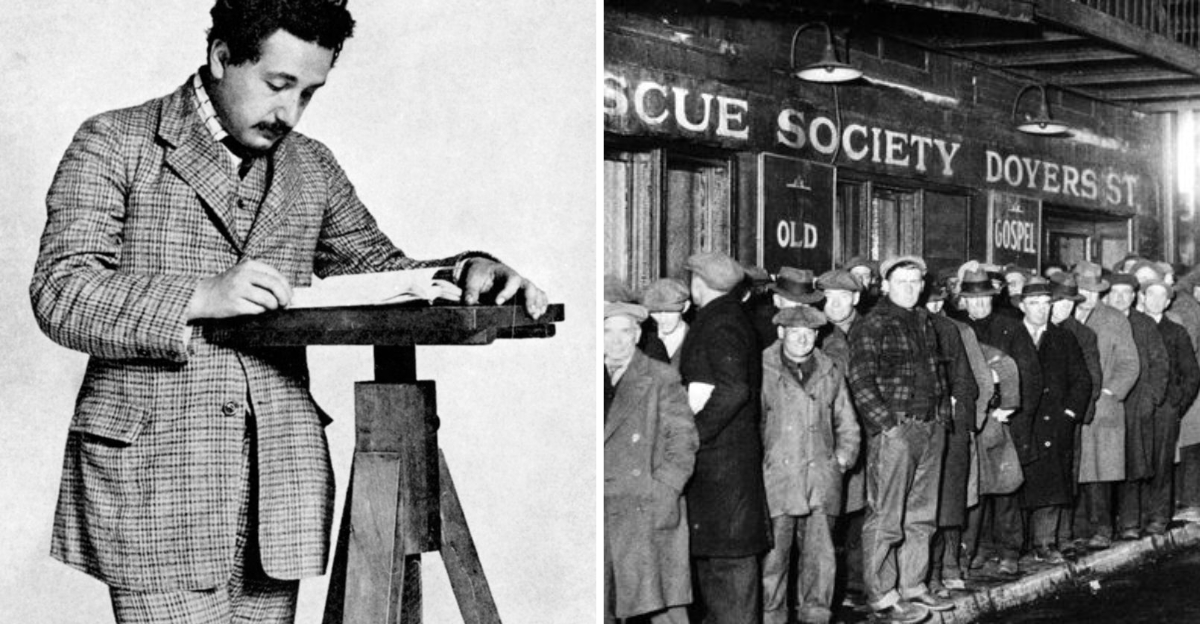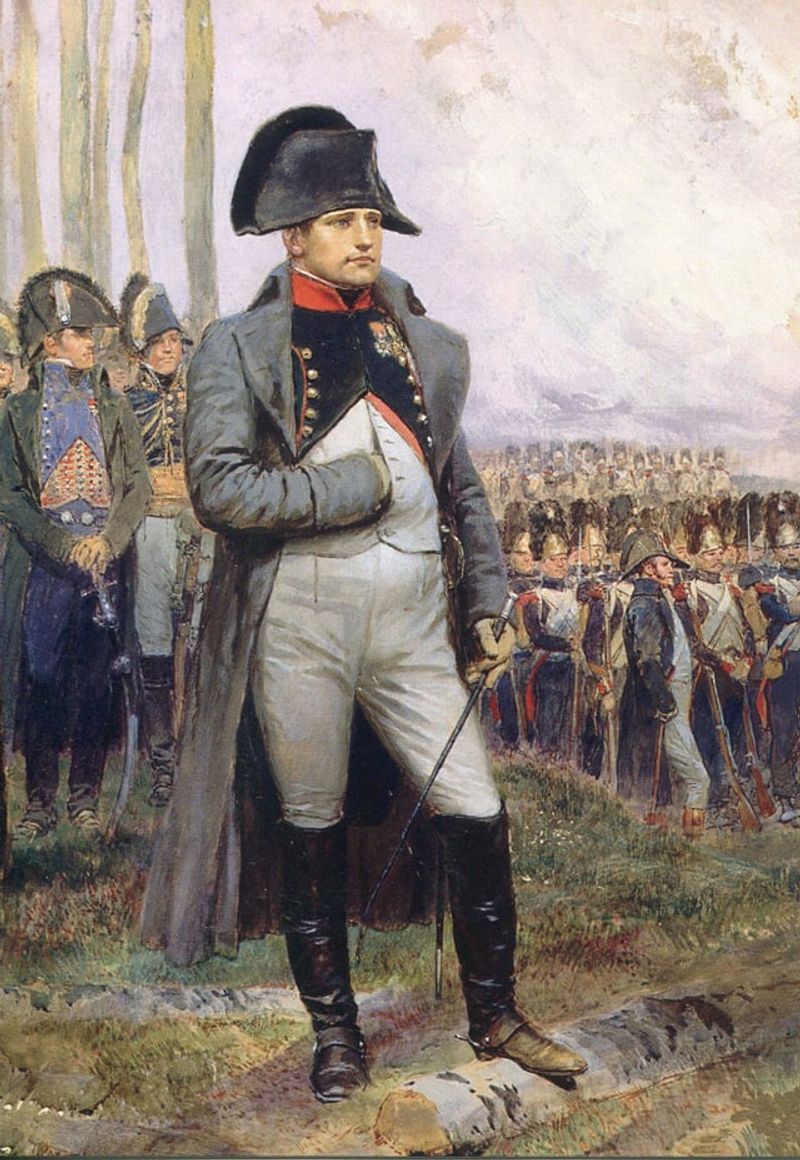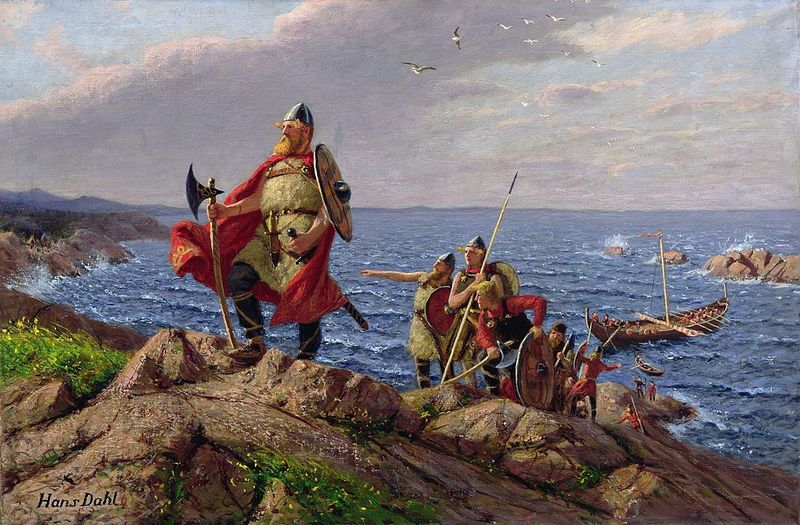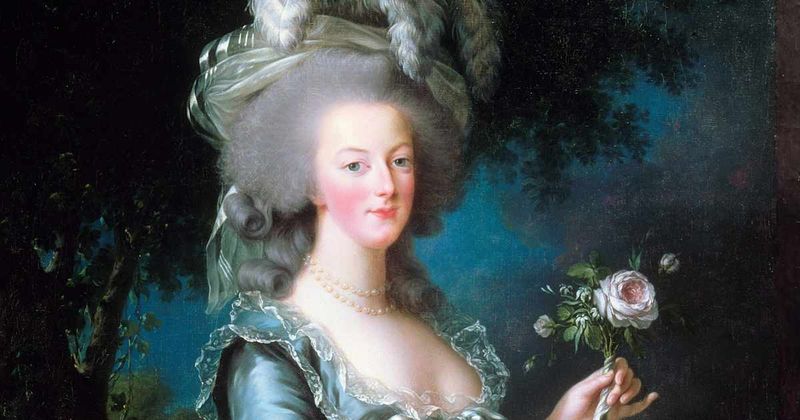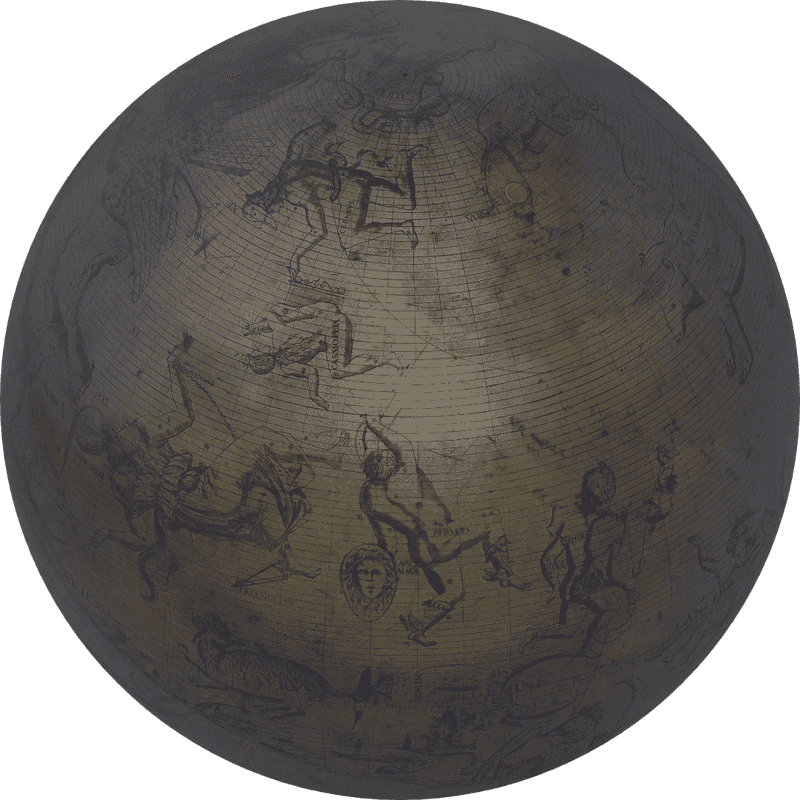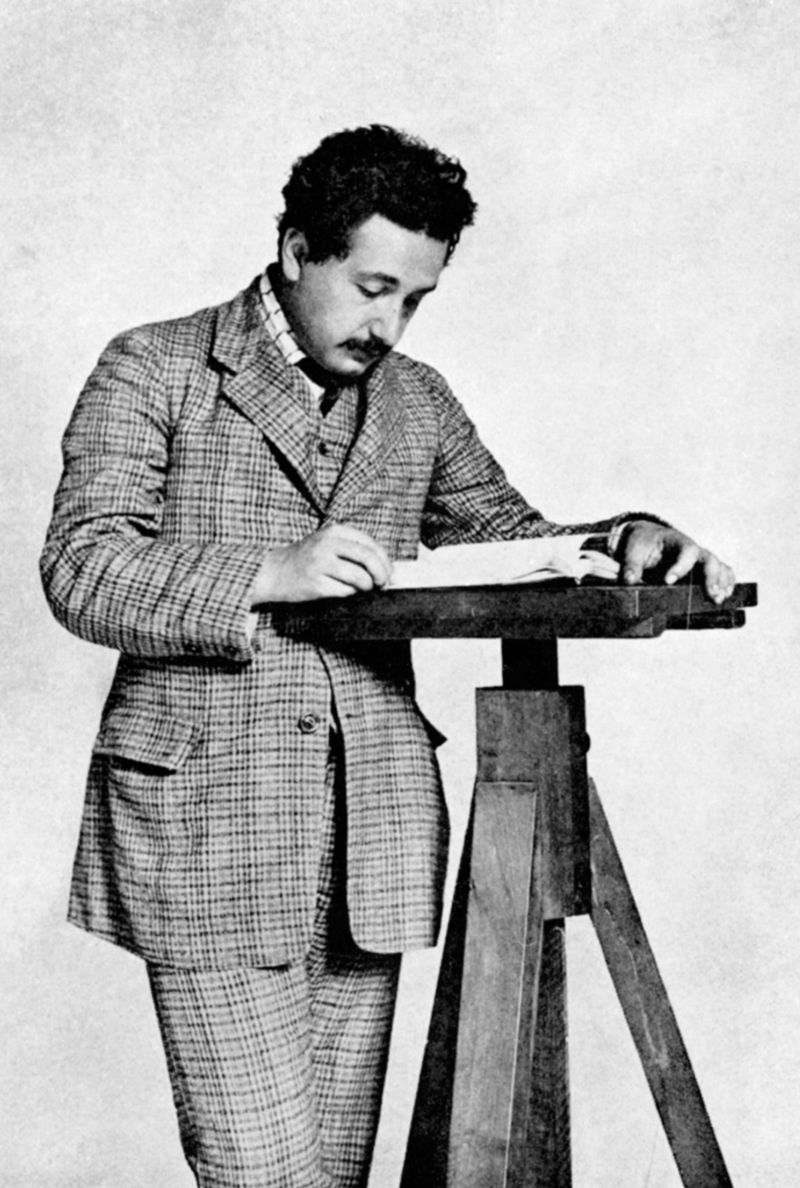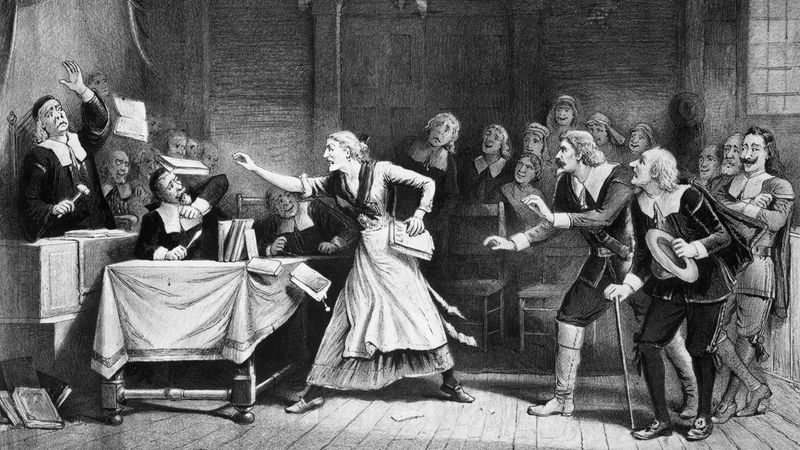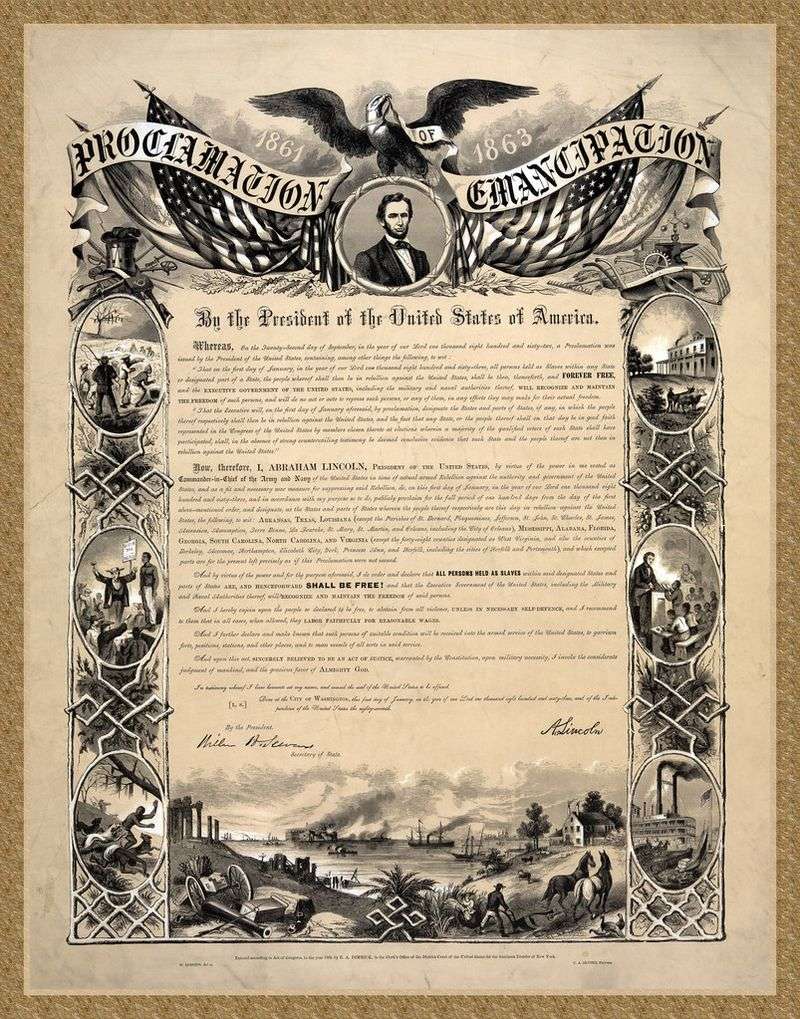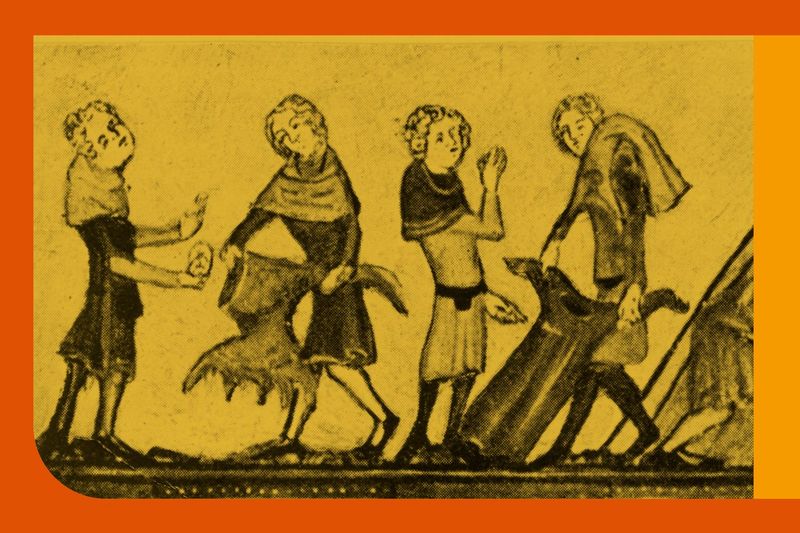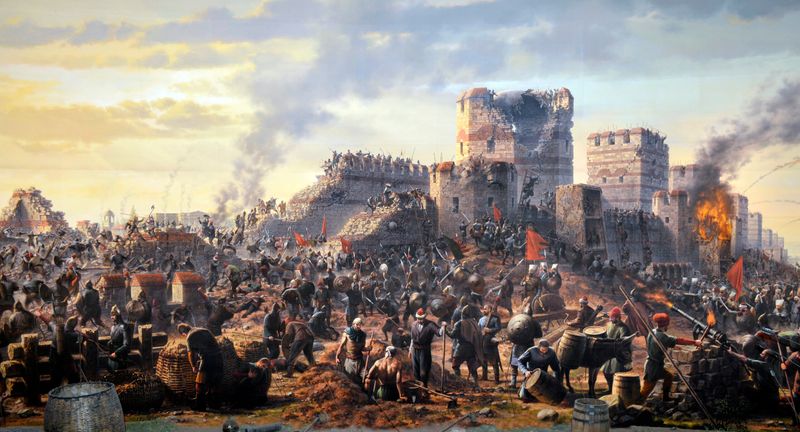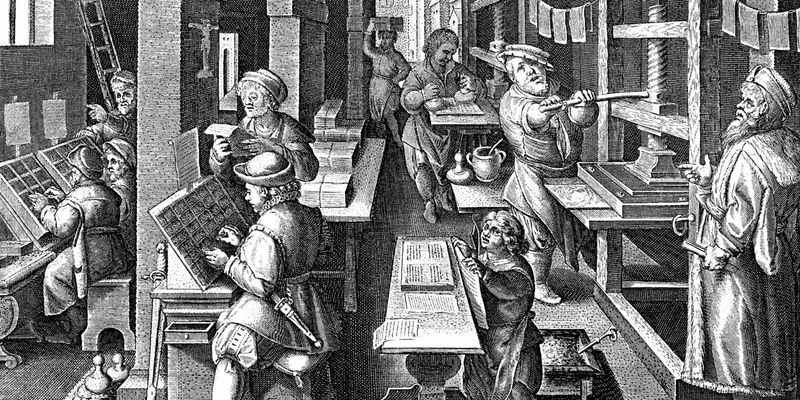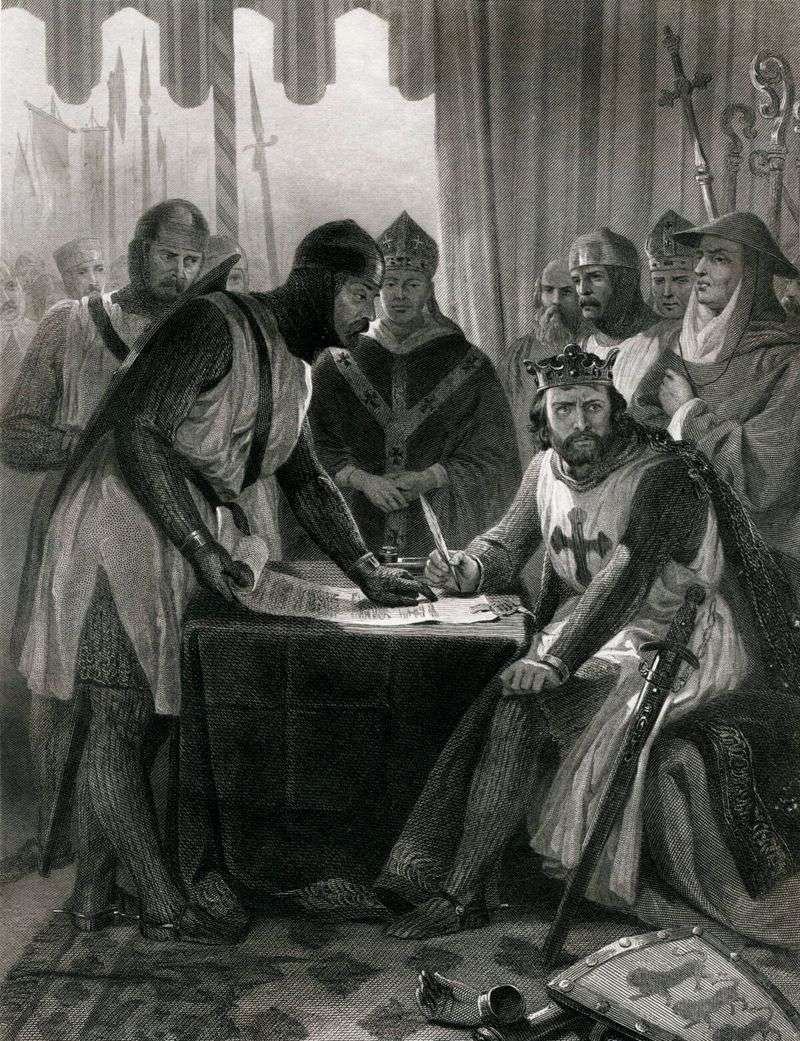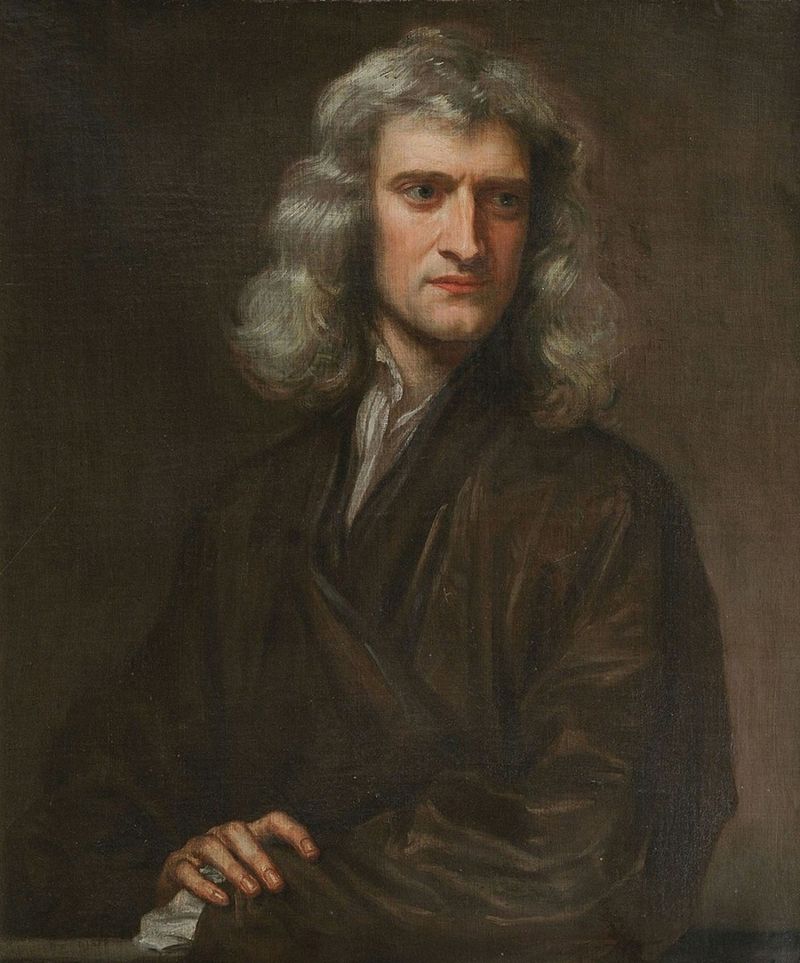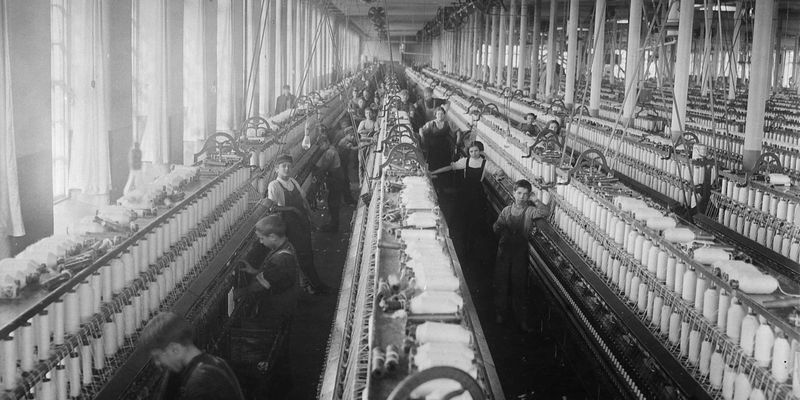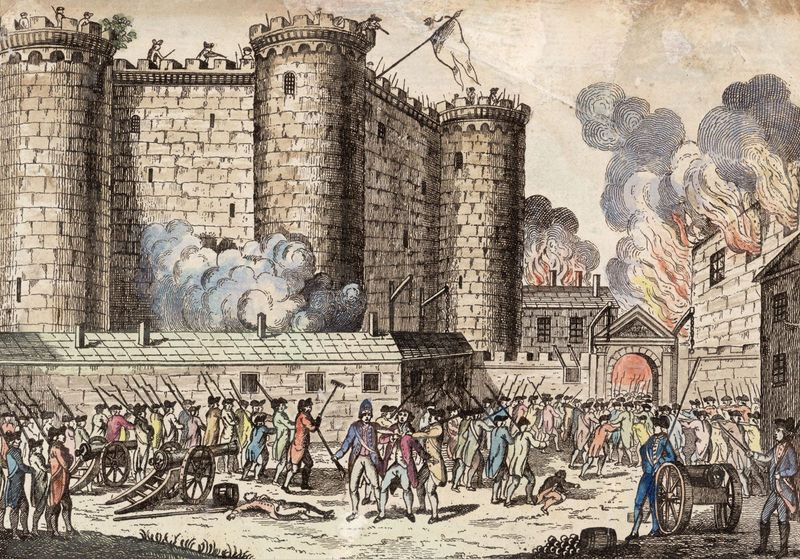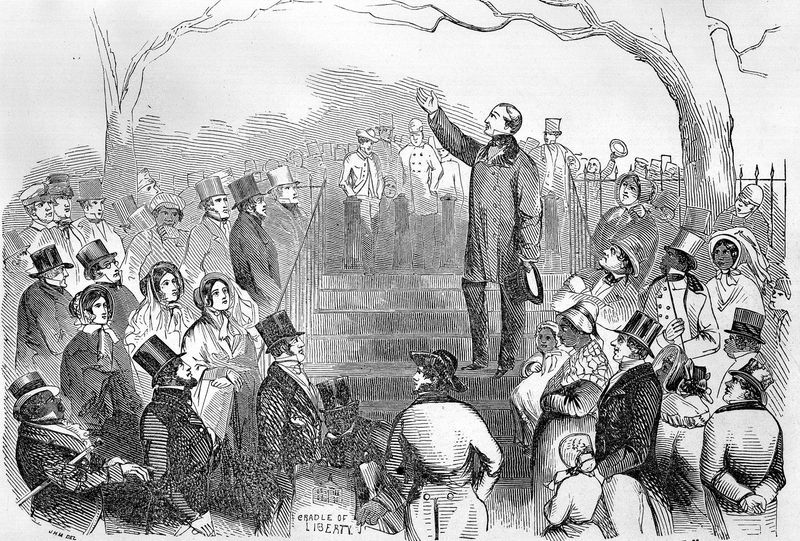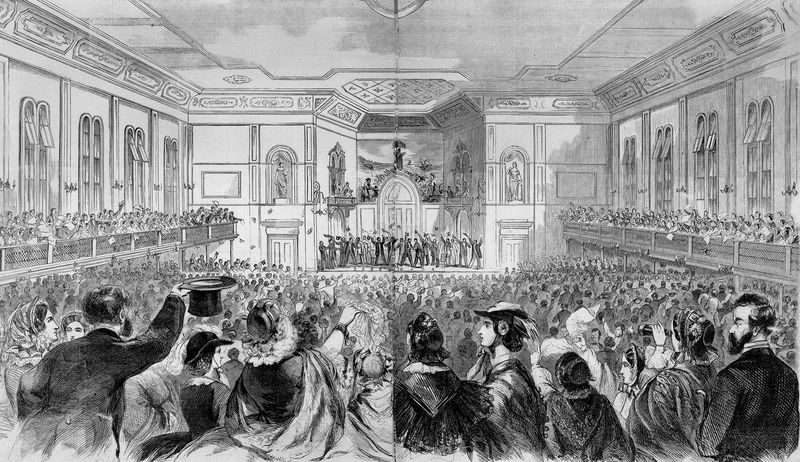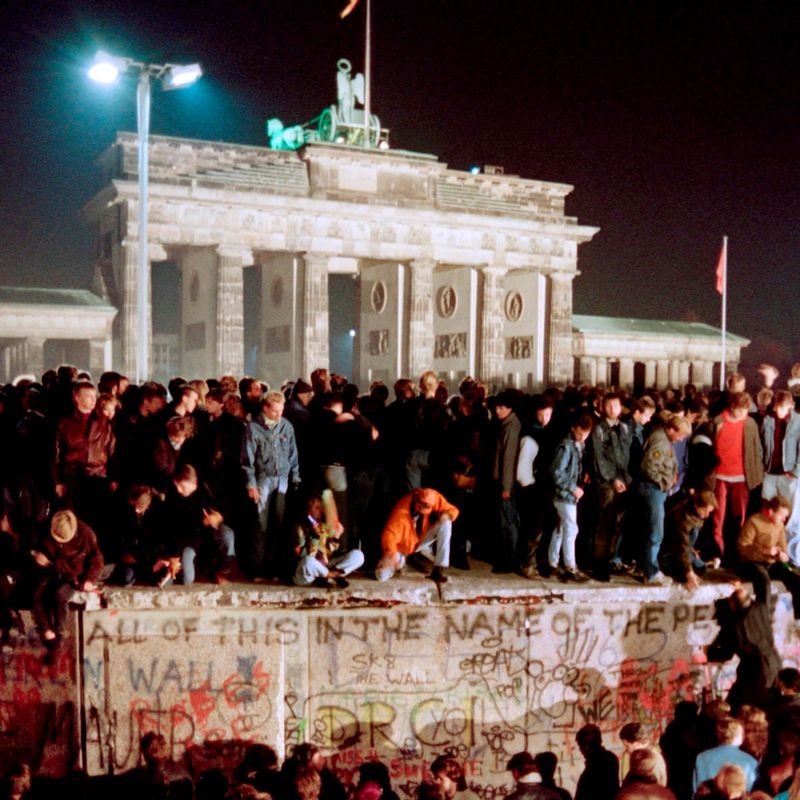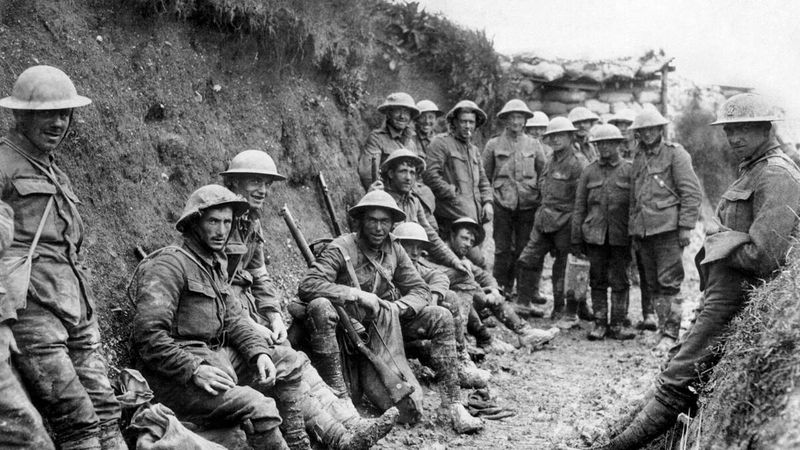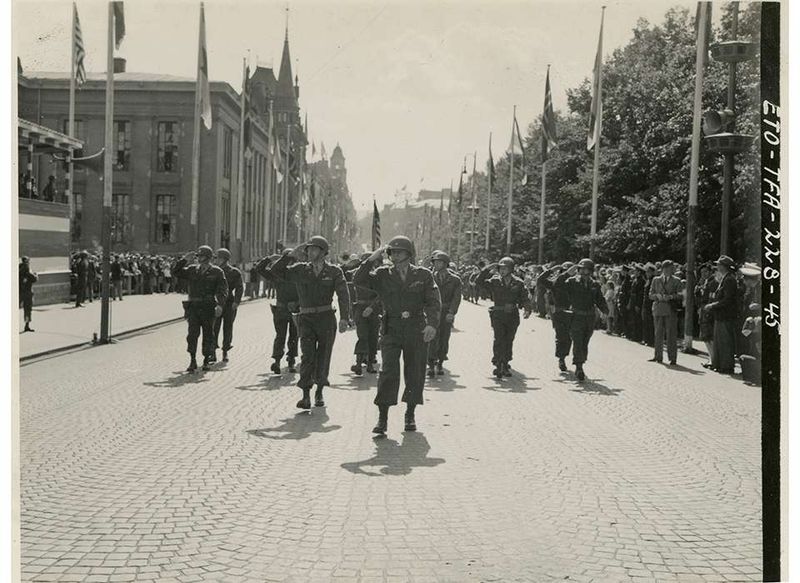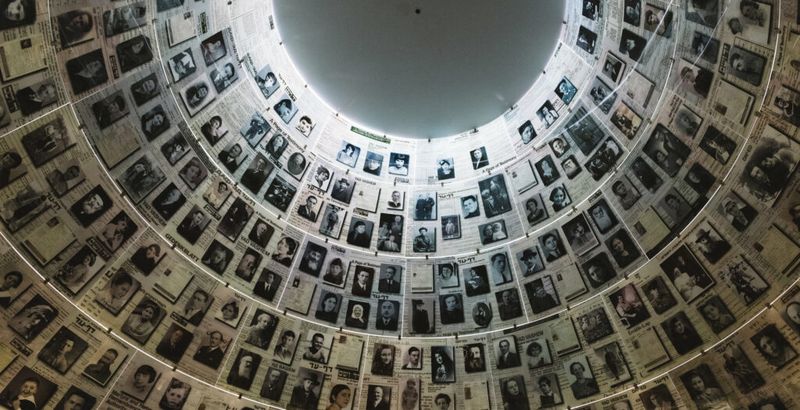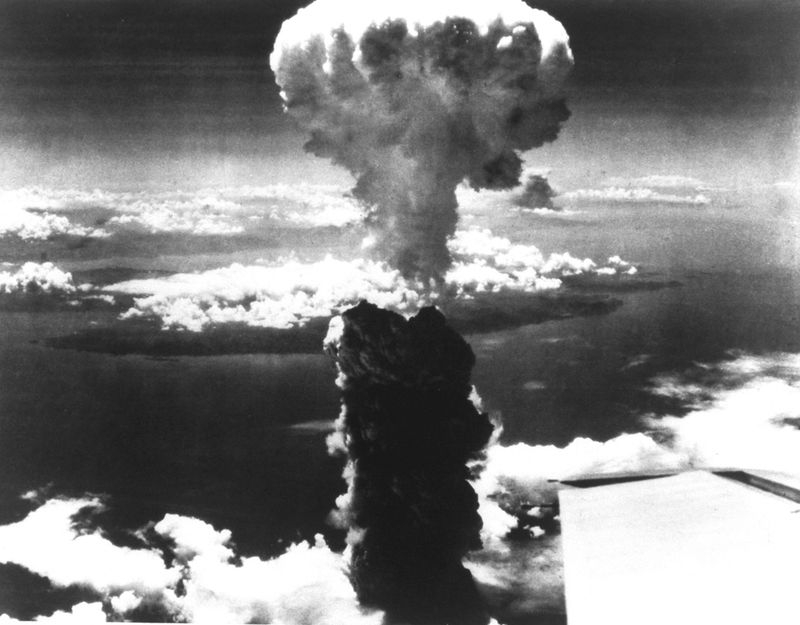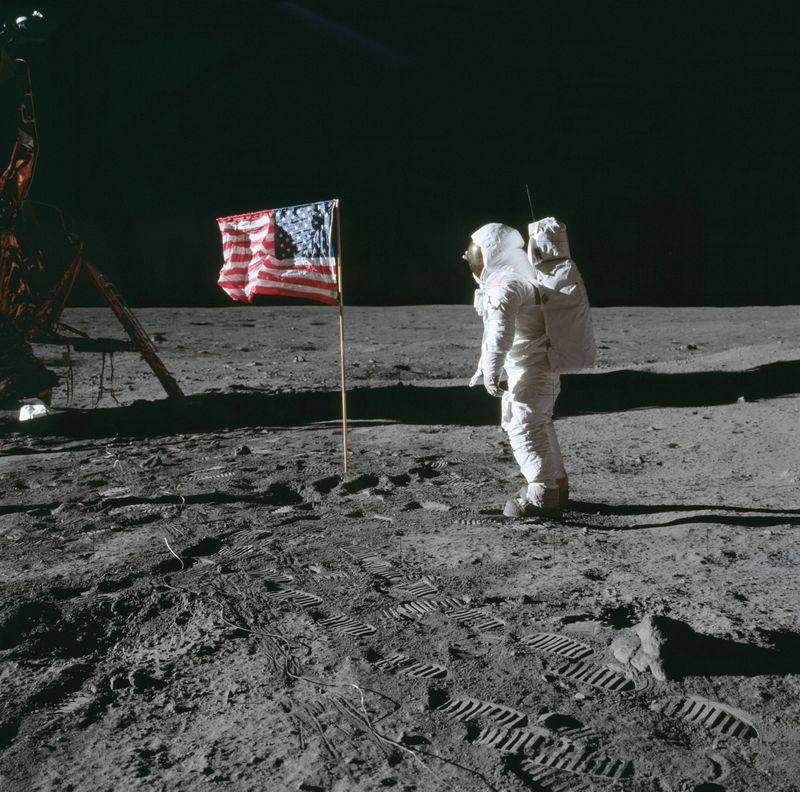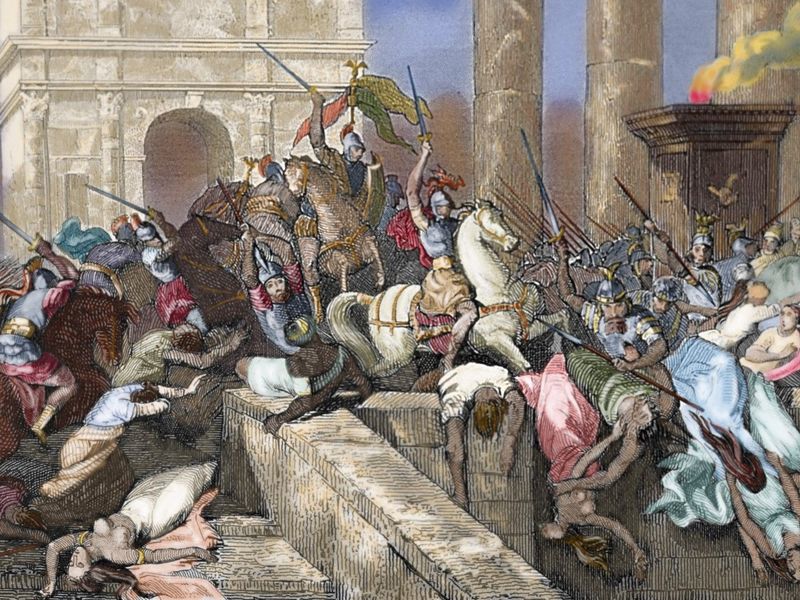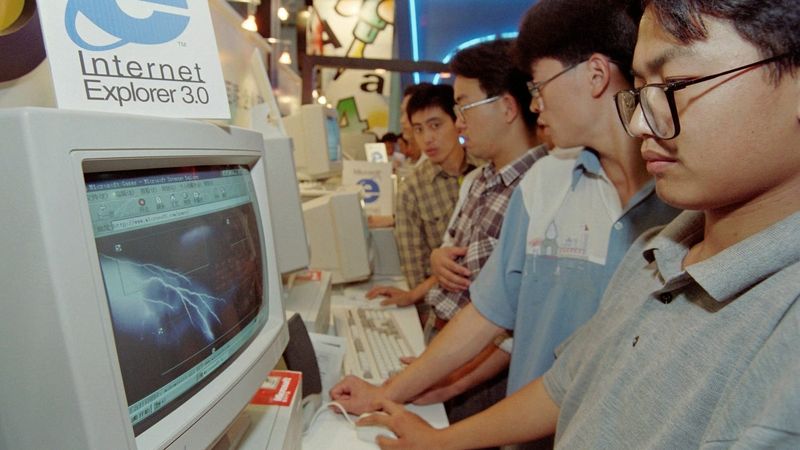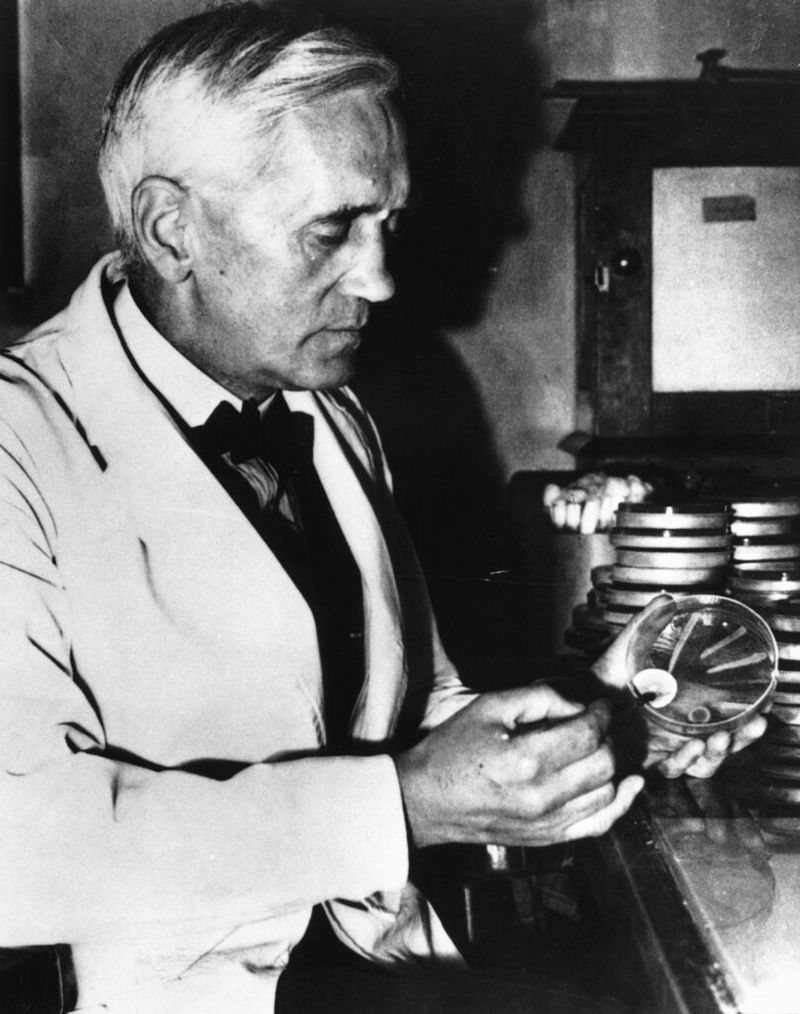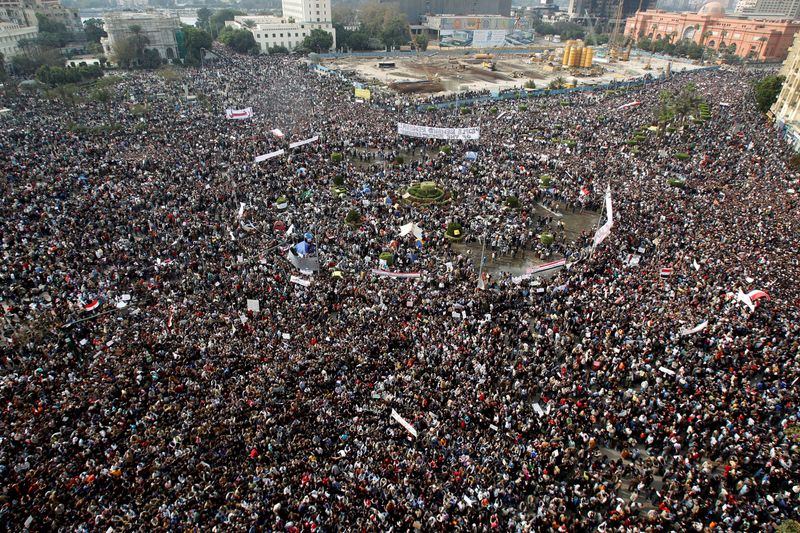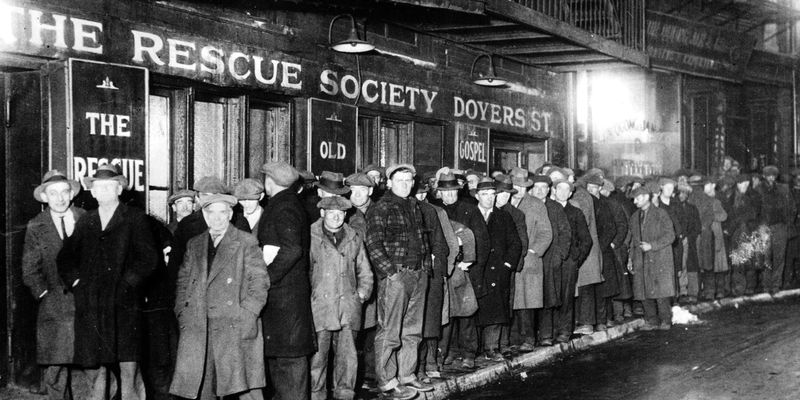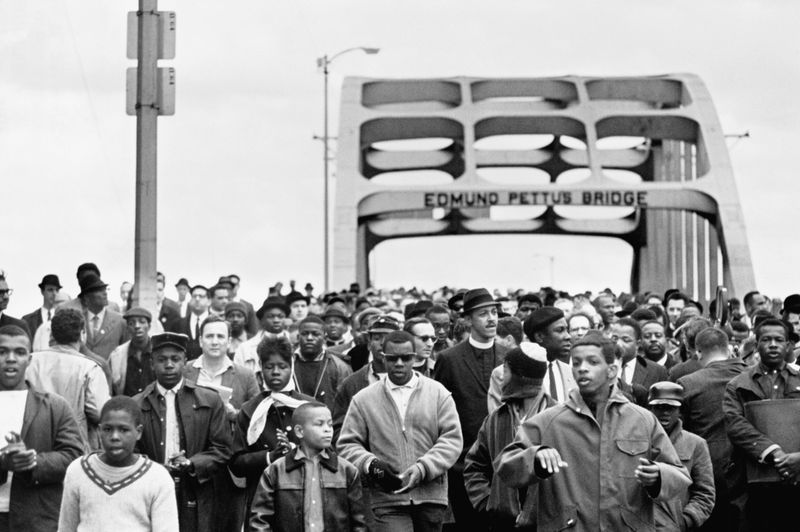History is often clouded by myths and misconceptions, overshadowing the events that truly reshaped our world.
This blog post aims to dispel common historical lies and highlight pivotal moments that have forged our present society.
By exploring these 9 myths and 23 transformative events, we gain a clearer understanding of our past and its lasting impact.
1. Napoleon Was Short
Napoleon Bonaparte, often depicted as short, was actually around 5’7″, an average height for a Frenchman of his time. The “short man” myth was a piece of British propaganda aimed to belittle him.
His commanding presence and military prowess made him a towering figure, both metaphorically and literally, in European history. Napoleon’s strategic mind and leadership skills led to numerous victories.
This myth persists in popular culture, overshadowing his actual stature and impact. Understanding the truth behind such myths helps us appreciate historical figures more accurately.
2. Columbus Discovered America
Christopher Columbus is commonly credited with discovering America, but indigenous peoples inhabited the continent long before his arrival. Norse explorer Leif Erikson reached North America centuries earlier.
Columbus’s voyages did open the door for European exploration, but the notion that he “discovered” America is misleading. His journeys marked the beginning of a new era of exploration and colonization.
Recognizing the rich history of indigenous civilizations and earlier explorations corrects a colonial-centric narrative. Understanding these nuances enriches our comprehension of world history.
3. Marie Antoinette Said ‘Let Them Eat Cake’
Marie Antoinette is famously attributed with the phrase “Let them eat cake,” but there is no solid evidence she ever uttered these words. This line was likely fabricated to discredit her during the French Revolution.
The myth paints her as out of touch with the common people, overshadowing her complex role in history. Known for her lavish lifestyle, Marie Antoinette became a symbol of monarchy excess.
Debunking this myth helps us see her as she was — a queen caught in the tumult of revolution, rather than a caricature of indifference.
4. The Great Wall of China is Visible from Space
The belief that the Great Wall of China is visible from space is a longstanding misconception. Even with aid, it’s barely discernible, and certainly not with the naked eye from space.
This myth arose from its impressive length and grandeur, symbolizing human endeavor. Built over centuries, the wall’s purpose was to protect Chinese states and empires from invasions.
Correcting this myth emphasizes the need for accurate representation of human achievements. It remains a remarkable feat of construction, but not one visible from the stars.
5. Vikings Wore Horned Helmets
The iconic image of Vikings wearing horned helmets is a theatrical invention from the 19th century. Historical evidence shows they wore simple, practical helmets without horns.
Vikings were known for their seafaring prowess, exploration, and raids across Europe. The horned helmet myth persists in popular culture, influencing how Vikings are depicted in media.
Understanding the truth behind this myth allows us to appreciate Viking culture’s complexity and innovation without the exaggeration. Their legacy remains influential in modern society, beyond fictional embellishments.
6. People in the Middle Ages Believed the Earth Was Flat
The myth that people in the Middle Ages believed the Earth was flat is misleading. Educated Europeans have known the Earth was round since ancient Greece.
Medieval scholars studied celestial bodies and understood the Earth’s sphericity through observations and calculations. This misconception emerged in the 19th century as a critique of medieval knowledge.
Recognizing medieval scholars’ contributions to science challenges the notion of a “dark age” of ignorance. Their insights paved the way for Renaissance advancements in astronomy and navigation, influencing exploration.
7. Einstein Failed Math as a Student
A widespread myth claims Albert Einstein failed math as a student, but he excelled in the subject from a young age. The myth likely stems from confusion over grading systems.
Einstein’s groundbreaking theories in physics, such as relativity, required an exceptional understanding of mathematics. His intellectual curiosity drove him to explore the universe’s mysteries.
Correcting this myth underscores the importance of nurturing young talent and curiosity. Einstein’s legacy as a brilliant physicist continues to inspire scientists and mathematicians worldwide.
8. Salem Witches Were Burned at the Stake
The Salem witch trials are often thought to have ended with witches burned at the stake, but in reality, the accused were hanged. This distinction is crucial in understanding the trials’ historical context.
The hysteria and fear that fueled the trials led to the persecution and execution of innocent people. Recognizing the true nature of these events sheds light on the dangers of mass hysteria and scapegoating.
The Salem witch trials remain a chilling reminder of the consequences of fear-driven actions and the importance of due process.
9. The Emancipation Proclamation Freed All Slaves
The Emancipation Proclamation, issued by President Abraham Lincoln, is often misconceived as freeing all slaves. It only applied to Confederate states in rebellion, not to border states still loyal to the Union.
The proclamation marked a turning point in the Civil War, redefining its purpose as a fight for freedom. It paved the way for the eventual abolition of slavery.
Understanding the nuances of the Emancipation Proclamation highlights the complexities of historical progress and the ongoing struggle for civil rights in the United States.
1. The Black Death (1347–1351)
The Black Death ravaged Europe between 1347 and 1351, wiping out up to 60% of the continent’s population. This catastrophic event rewired global economies and social structures.
Labor shortages led to shifts in class systems and increased demands for workers’ rights. It also accelerated changes in medical understanding and public health policies.
The pandemic’s far-reaching effects reshaped European society, influencing art, literature, and religion. The Black Death remains a pivotal moment in history, illustrating the profound impact of disease on human civilization.
2. The Fall of Constantinople (1453)
The fall of Constantinople in 1453 marked the end of the Byzantine Empire and redirected global trade routes. This event fueled the Age of Exploration as Europeans sought new paths to the East.
The Ottoman Empire’s rise reshaped political and cultural dynamics in the region, influencing European and Asian interactions.
Understanding the fall of Constantinople helps us appreciate its role in transforming trade, exploration, and empire-building. It highlights a turning point that reshaped global connections and cultural exchanges.
3. The Printing Press (c. 1440)
Johannes Gutenberg’s invention of the printing press around 1440 revolutionized knowledge dissemination. It democratized information, making books more accessible and paving the way for the Reformation and Enlightenment.
The printing press enabled the spread of ideas, challenging established authority and promoting literacy. It transformed education and communication, laying the groundwork for modern society.
This technological breakthrough highlights the power of innovation in shaping human progress. The impact of the printing press is still felt today, as it continues to influence education and media.
4. The Signing of the Magna Carta (1215)
The signing of the Magna Carta in 1215 laid the foundation for constitutional law and individual rights. This pivotal document limited the powers of the monarchy and established principles of justice.
It influenced the development of legal systems worldwide, promoting the idea of accountability and fairness. The Magna Carta’s legacy is reflected in modern democratic governance and human rights.
Recognizing the significance of the Magna Carta underscores its enduring impact on political and legal thought. It remains a symbol of the struggle for freedom and justice.
5. The Scientific Revolution
The Scientific Revolution, featuring figures like Galileo, Newton, and Kepler, forever changed how humans understand the universe. This intellectual upheaval challenged traditional beliefs and emphasized observation and experimentation.
It led to groundbreaking discoveries in physics, astronomy, and biology, laying the groundwork for modern science. The revolution shifted the focus from superstition to empirical evidence.
Appreciating the Scientific Revolution helps us understand the transformation of human thought and its impact on technological advancement. It highlights the enduring quest for knowledge and truth.
6. The Industrial Revolution
The Industrial Revolution marked a period of massive urbanization, global trade, and technological innovation. It transformed economies and societies, with lasting environmental effects.
Factories, steam engines, and mechanization reshaped industries and labor practices. The revolution brought about significant social changes, including the rise of the working class.
Understanding the Industrial Revolution’s impact emphasizes the role of technology in shaping modern life. It remains a defining moment in history, illustrating the potential and challenges of industrial progress.
7. The French Revolution (1789)
The French Revolution of 1789 toppled monarchy, inspired democracies, and spread ideals of liberty and equality. This tumultuous period redefined political systems and social hierarchies.
The revolution’s influence extended beyond France, inspiring movements for change worldwide. It challenged traditional authority and promoted the rights of citizens.
Recognizing the French Revolution’s significance highlights its enduring impact on modern political thought and governance. It remains a symbol of the fight for freedom and justice in the face of oppression.
8. The Abolition of the Slave Trade
The abolition of the transatlantic slave trade changed the economic structure of multiple empires. This human rights victory marked a turning point in the fight against slavery.
The movement’s success was due to the efforts of abolitionists who advocated for justice and equality. Their work paved the way for the eventual end of slavery in the West.
Understanding the abolition’s impact emphasizes the power of collective action in achieving social change. It remains a testament to human resilience and the pursuit of freedom and dignity.
9. The American Civil War
The American Civil War redefined U.S. federal power and marked the beginning of the end of institutional slavery in the West. This conflict reshaped the nation’s political and social landscape.
The war’s outcome preserved the Union and set the stage for Reconstruction and civil rights advancements. It highlighted the deep divisions and struggles over slavery and governance.
Recognizing the Civil War’s significance underscores its lasting impact on American identity and values. It remains a pivotal moment in history, shaping the nation’s trajectory.
10. The Fall of the Berlin Wall (1989)
The fall of the Berlin Wall in 1989 symbolized the end of the Cold War and the collapse of communist regimes in Eastern Europe. This event marked a turning point in global politics.
The wall’s demolition represented the triumph of freedom over oppression and the reunification of Germany. It inspired democratic movements across the region.
Understanding the fall of the Berlin Wall highlights its role in reshaping the political landscape and promoting unity. It remains a symbol of hope and the power of peaceful change.
11. World War I
World War I shattered empires and redrew borders, triggering long-lasting political instability. This conflict marked a significant shift in global power dynamics.
The war introduced modern warfare technologies and tactics, leading to unprecedented destruction and loss of life. It reshaped international relations and political ideologies.
Recognizing World War I’s impact emphasizes the importance of diplomacy and conflict resolution. It remains a stark reminder of the consequences of war and the need for peace and cooperation.
12. World War II
World War II led to the creation of the United Nations, the Cold War, and a nuclear arms race. This global conflict redefined alliances and geopolitical landscapes.
The war ended with the defeat of fascist regimes and the liberation of occupied territories. It also highlighted the horrors of genocide and the importance of human rights.
Understanding World War II’s legacy underscores the need for international cooperation and peacekeeping. It remains a defining moment in history, shaping the modern world order.
13. The Holocaust
The Holocaust was a tragic atrocity that reshaped human rights laws and international justice systems. This genocide targeted millions, emphasizing the need for vigilance against hatred and intolerance.
The world responded with the establishment of the Universal Declaration of Human Rights and efforts to prevent future atrocities. The Holocaust remains a poignant reminder of the consequences of unchecked prejudice.
Recognizing its impact highlights the importance of education, remembrance, and the pursuit of justice. It remains a crucial chapter in history, influencing global human rights advocacy.
14. The Atomic Bomb (1945)
The use of atomic bombs in 1945 ended World War II and began the nuclear age, reshaping global diplomacy forever. This technological advancement highlighted the destructive power of nuclear weapons.
The bombings of Hiroshima and Nagasaki led to Japan’s surrender and raised ethical debates about warfare. They emphasized the need for arms control and nonproliferation efforts.
Understanding the atomic bomb’s impact underscores the importance of responsible science and diplomacy. It remains a pivotal moment in history, influencing global security strategies.
15. Moon Landing (1969)
The 1969 moon landing showcased human achievement, sparking a technological boom and redefining global imagination. This milestone demonstrated the potential of exploration and innovation.
The Apollo 11 mission inspired generations to pursue science and space exploration. It highlighted the possibilities of human ingenuity and international cooperation.
Recognizing the moon landing’s significance emphasizes the power of dreams and discovery. It remains a symbol of what humanity can achieve when united in pursuit of knowledge and progress.
16. The Fall of the Roman Empire
The fall of the Roman Empire reshaped Europe’s political, religious, and cultural identity for centuries. This decline marked the transition from antiquity to the medieval era.
The empire’s fragmentation led to the rise of new kingdoms and the spread of Christianity. It influenced law, language, and governance across Europe.
Understanding the fall of Rome highlights its foundational role in Western civilization. It remains a cornerstone of historical study, illustrating the complexities of empire and legacy.
17. 9/11 Attacks
The 9/11 attacks redefined global security, foreign policy, and civil liberties. This event reshaped the Middle East and U.S. relations with other nations.
The attacks led to the War on Terror and significant changes in international security protocols. They also prompted reflections on freedom and safety.
Recognizing the impact of 9/11 emphasizes the need for vigilance and understanding in a complex world. It remains a pivotal moment in contemporary history, influencing global geopolitics.
18. The Rise of the Internet (1990s)
The rise of the internet in the 1990s transformed communication, economies, education, and nearly every aspect of modern life. This technological revolution reshaped how people connect and access information.
The internet enabled the rapid exchange of ideas and commerce, fostering globalization and innovation. It continues to evolve, influencing media, politics, and culture.
Understanding the internet’s impact highlights the power of connectivity and digital transformation. It remains a driving force in shaping the future, with both opportunities and challenges.
19. The Invention of Penicillin
Alexander Fleming’s discovery of penicillin ushered in the antibiotic era and revolutionized medicine. This breakthrough transformed the treatment of bacterial infections and saved countless lives.
Penicillin’s impact extended beyond healthcare, influencing scientific research and public health strategies. It marked the beginning of modern pharmaceuticals and drug development.
Recognizing penicillin’s significance underscores the importance of innovation in medicine. It remains a cornerstone of medical advancement, illustrating the potential of scientific discovery.
20. The Arab Spring (2010–2012)
The Arab Spring uprisings transformed regional politics and global diplomacy. This series of protests and revolutions challenged authoritarian regimes in the Middle East and North Africa.
The movements highlighted the demand for democracy, freedom, and human rights, inspiring change across the region. They underscored the power of grassroots activism and social media.
Understanding the Arab Spring’s impact emphasizes the complexities of political change and the pursuit of justice. It remains a significant chapter in contemporary history, influencing ongoing struggles for reform.
21. The Great Depression (1929)
The Great Depression crushed economies, caused global hardship, and redefined government economic intervention. This financial crisis highlighted the vulnerabilities of capitalism and market systems.
The depression led to widespread unemployment and poverty, prompting new policies and social safety nets. It influenced economic theory and practice, shaping modern fiscal strategies.
Recognizing the Great Depression’s impact underscores the importance of economic resilience and reform. It remains a critical lesson in history, illustrating the need for balanced growth and social welfare.
22. COVID-19 Pandemic
The COVID-19 pandemic exposed weaknesses in global systems, accelerated digital change, and reshaped work and healthcare. This crisis highlighted the importance of preparedness and adaptability.
The pandemic prompted shifts in daily life and accelerated technological adoption, including remote work and telemedicine. It emphasized the need for global cooperation in addressing health challenges.
Understanding COVID-19’s impact underscores the importance of resilience and innovation. It remains a defining event in contemporary history, influencing future public health and economic policies.
23. The Civil Rights Movement (1950s–60s)
The Civil Rights Movement challenged segregation, reshaped democracy, and continues to influence justice movements today. This struggle emphasized the fight for racial equality and civil liberties.
The movement’s successes included landmark legislation and social change, inspiring future generations to pursue justice. It highlighted the power of collective action and leadership.
Recognizing the Civil Rights Movement’s impact underscores its ongoing relevance in promoting human rights. It remains a vital chapter in history, influencing global efforts for equality and inclusion.
